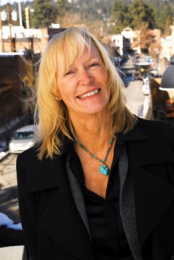 House of Representatives Majority Leader Eric Cantor referred to those gathering on Wall Street, college campuses and other sites around the country as ‘growing mobs’ trying to divide the country.
House of Representatives Majority Leader Eric Cantor referred to those gathering on Wall Street, college campuses and other sites around the country as ‘growing mobs’ trying to divide the country.
The protesters lament the Wall Street bailout in 2008, which they say allowed banks to enjoy huge profits while the rest of the country suffered through a recession.
It’s hard to say whether the sit-ins will have an impact on the banking system and the greed on Wall Street that continues to shock us with big bonuses and little reprimand for big banks’ role in destroying the economy.
However, what can possibly be wrong with these mostly young people doing their best to make their voices heard? If there’s any fear at all it should be directed at an organized effort by union leaders to take over the protest rather than to allow a grassroots effort to proceed.
The protesters perception is that nothing has been done or is being done to rectify the current economic troubles seen all over the country. And in truth, they’re absolutely right. Congress has done little to address the real concerns of the unemployed.
Some are troubled that the Occupy Wall Street gatherers don’t have a specific agenda and have made no effort to make any demand for change. Although a recent demand includes “free college tuition” and “immediate across the board forgiveness” of student debt. While neither demand may be very realistic, the student debt problem is quite real.
According to FinAid.org, which carries a “student debt clock” on its website, outstanding student debt is on pace to top $1 trillion in a matter of months. Student debt surpassed credit card debt in 2010. The average 2011 college graduate had $27,204 in student debt, according to the organization.
Regardless of specific demands this is an effort that seems particularly genuine and certainly timely. Shouldn’t someone be voicing displeasure with the current state of affairs? The movement has many Americans applauding the attempt to find a legitimate means to express mounting dissatisfaction with the banking industry that has caused million to lose their homes and their jobs. It is also important to note that in 1965 CEO pay was 24 times greater than the average employee’s pay—and today it’s 300 times greater.
If you check out the Occupy Wall Street website: www.workingamerica.org you’ll find this, “The people who gave us the financial crisis are at it again. Their greed and irresponsibility demolished our economy, leaving us to bail them out—and how do they thank us? They’re going right back to business as usual, getting rich off of our money and spending millions lobbying against new rules to prevent a future crisis. Now, to add insult to injury, some banks are creating new monthly fees just for having a debit card. Around the country, starting from New York’s Liberty Plaza, people are standing up and saying enough is enough. It’s time for banks to be a safe place for our money, not another place to get nickeled and dimed.”
Not you’re typical supporters of the sit-ins and mass demonstrations you’ll be surprised to hear these comments.
CNN writer Mark Egan found some unlikely supporters of this movement:
A top U.S. Federal Reserve official said the protests were an understandable reaction to persistently high unemployment.
“I am somewhat sympathetic – that will shock you,” Dallas Fed President Richard Fisher said. “We have too many people out of work for too long. We have a very frustrated people, and I can understand their frustration,” he said.
The head of the finance arm of General Electric Co, which needed Washington’s help to survive in 2008, said he too was sympathetic. “If I were unemployed now, I’d be really angry too,” said Michael Neal of GE Capital. “There are a lot of unhappy people right now and there’s not a lot going on that gives you much reason to be inspired.”
Georgetown University history Professor Michael Kazin, an expert on social movements as an academic and as a protester himself since the Vietnam war days, says the protests are evocative of those in the Great Depression.
“This is like some of the protests in the 1930s, which started … with protests about joblessness and was then funneled into the rising labor movement,” he said, noting that now, like then, students, intellectuals and union workers share the same basic goal – a good job.
Kazin said the protests could become a liberal counterbalance to the Tea Party. “Politicians have to be pushed. You cannot just hope they will do the right thing,” said Kazin, author of American Dreamers: How the Left Changed a Nation and co-editor of Dissent magazine. “The history of social and political change in America is movements that pressure change from politicians.”
America is an ideal place to stage a movement against the status quo. What better time could this be happening when we need a positive forum to vent our frustrations? And who better to do it than unemployed struggling students who have felt powerless to change anything in Washington? It reminds us that we have a say in our country and that it’s time to hold our elected leaders and corporation giants accountable for their actions. pha





